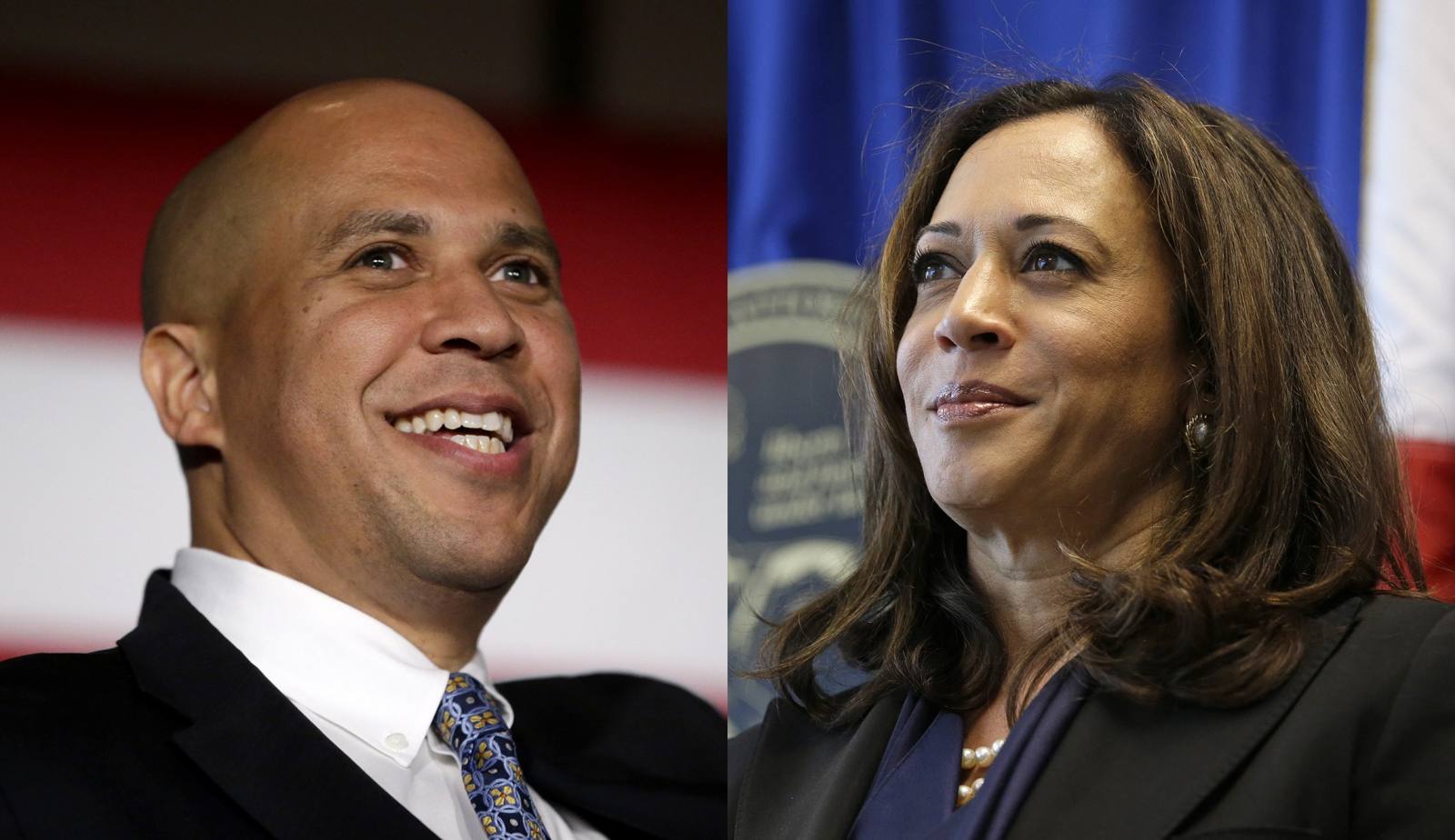Remember the “most diverse” primary field in history? Well, not anymore since Sen. Kamala Harris decided to exit the race. The result of Harris’ decision could leave the next debate stage as an all-white affair with the remaining African-American candidate, Sen. Cory Booker, so far failing to meet the debate threshold.
Here’s Booker today gabbing with an MSNBC host over the current state of the race and what he calls a “damn shame” that there will potentially be no ethnic minority standing on stage in December:
Other media outlets are picking up on the situation as well with the LA Times quoting one Democratic activist saying an all-white stage is the result of racism and sexism in the primary:
The absence of any candidate of color in the top tier is a point of consternation for many Democrats at a time when African American and Latino voters have become some of the party’s biggest constituencies and crucial to its hopes of defeating President Trump.
“No matter your candidate, you have to recognize that going from the most diverse field ever in January to a potentially all-white debate stage in December is catastrophic,” said Leah Greenberg, co-founder of Indivisible, a Democratic activist group. “The implicit racism and sexism of ‘electability’ is deeply damaging to democracy.”
This is quite a predicament the Democratic Party has been painted into. The field has been winnowed by the usual methods, measurements of polling and fundraising, two typically solid gauges on how strong a candidate could be in the general election. This year, however, there is an added qualifier of which candidate, in the minds of voters, has the best chance at beating President Trump.
From the beginning, Joe Biden has been holding the “most electable” prize but recently began sharing it with Elizabeth Warren, and now Pete Buttigieg is surging in the “electable” category.
Does that mean being “electable” means being white? Some activists are implying that:
“The Democratic field became much less diverse today, after the only black woman in the presidential race dropped out,” Aimee Allison, founder of She the People, an advocacy group that promotes women of color in politics, said in a statement.
“Kamala’s presence in the race helped blaze a trail for the next generation of women of color. She ran a competitive campaign that has forced us to rethink what it means to be electable.” [Emphasis added]
Harris actually didn’t actually run a very competitive campaign, as evidenced by her early exit. She also never notched any increase in her perceived electability, which is in part the result of a bad campaign. Does that mean as a minority she’s not electable, or as a candidate who ran a bad campaign she’s not electable? Or is Allison saying Harris was indeed electable but didn’t make the cut for whatever reason?
Contrast this year with the 2008 election. Then-Senator Barack Obama broke down all kinds of barriers and ran a successful primary and general election to become the nation’s first African-American President. His success, largely attributed to his ability to connect with voters, overcame any hesitation about his skin color causing him issues in the general election.
A presidential primary is supposed to be a thorough and complete test of the candidates. Can they sustain the campaign, can they hone their message, and can they stand out and connect with voters? Some candidates will start with built-in advantages, like Biden being a former vice president. Others will need to build a national person, like Pete Buttigieg. Still others, like Kamala Harris and Cory Booker, built their reputations as U.S. Senators.
Whatever the case may be, the eventual nominee will be looking to balance the ticket by picking a vice president who compliments them in terms of making up for shortfalls. Maybe a Biden-Harris ticket isn’t out the question after all. Over the next few weeks, however, the debate over debate diversity will be well-debated by the commentators and candidates alike.
Donate Now to Support Election Central
- Help defend independent journalism
- Directly support this website and our efforts
